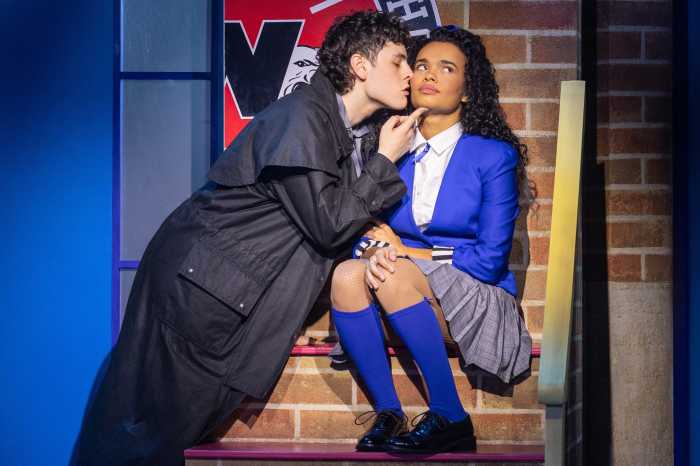Two days after his actual 90th birthday anniversary, admirers, supporters and comrades of Michael Manley will recall the legacy left by Jamaica’s fourth prime minister during the first forum to launch a legacy series.
Featuring influential spokespersons from the community, distinguished panelists Dr. Basil Wilson, Professor Anthony Bogues, and Delano Franklin will kick-off the forum slated for 6:00 p.m. at St. James Church, 2500 Jerome Ave. in the Bronx.
A topical discussion will focus on a myriad of issues and will likely highlight the politics and agenda proposed by the former government leader who is perhaps associated with a legacy that endorsed democratic socialism from 1972 to 1980 and again from 1989 to 1992.
Regarded “as one of the best prime ministers since independence” in 1962, the Jamaican was also revered being the second son of the island’s only Premier Norman Washington Manley and Jamaican artist Edna Manley.
Popularly acclaimed as a charismatic figure who revolutionized attire in government by ditching the traditional shirt and tie outfit when making public appearances, and instead opting to sport what seemed a more comfortable and suited safari jacket with slacks.
Manley is also recalled for helming the People’s National Party a few months before his father’s death in 1969.
Born Dec. 10, 1924, he died at age 72 on March 6, 1997.
A proponent of issues far removed from the British, institutionalized tradition, Manley is credited with establishing a minimum wage for all workers. He initiated a policy that ensured equal pay for women. During his administration he was able to secure those rights for everyone including domestic workers. His governance also enabled the lowering of the voting age to 18 years.
In 1974, Manley proposed free education from primary school to university.
According to Wikipedia: “The PNP government in 1974 also formed the Jamaica Movement for the Advancement of Literacy (JAMAL), which administered adult education programs with the goal of involving 100,000 adults a year.”
Land reform expanded under his administration. Reportedly, an estimated 14 percent of idle land was redistributed through this program. Allegedly, much of the land he reclaimed had been “abandoned during the post-war urban migration and/or purchased by large bauxite companies.”
The progressive period of his tenure also introduced maternity leave. Some will attest that under Manley’s administration, the stigma of illegitimacy was outlawed.
Other domestic changes included the establishment of The National Housing Trust. For many it provided “the means for most employed people to own their own homes.”
In addition, it also “greatly stimulated housing construction, with more than 40,000 houses built between 1974 and 1980.”
Perhaps most controversial in the international arena, his diplomatic alliances proved disquieting to the U.S. government. Although history dictates that Manley believed in respecting the different systems of government of other countries and not interfering in their internal affairs, close friendships with African leaders and particularly one he cultivated with a neighbor seemed disconcerting to leaders of the most powerful nation on earth.
Among the friendly foreign leaders, Tanzania’s Julius Nyere, Pierre Trudeau of Canada and to the ire of the United States, Fidel Castro of Cuba found favor with Manley’s policies. Located just 90 miles away from Jamaica, it seemed ludicrous to Manley to weaken diplomatic relations by ignoring his neighbor nation. Instead he strengthened relationships between Cuba and Jamaica.
Panelists will elaborate on the many policies executed throughout Manley’s tenure and may even spotlight some of the faux pas his detractors cite as blemishes to his distinguished legacy.
Franklin who represents Jamaica’s Michael Manley Foundation will be the chief toaster to the birthday anniversary. Appointed the chief advisor to Prime Minister P.J. Patterson in 1998, he has since served as senator and the minister of state in the Ministry of Foreign Affairs and Foreign Trade with special responsibility for the Jamaican diaspora and overseas communities.
Following that administration, Prime Minister Portia Simpson Miller further entrusted Franklyn by giving him ministerial oversight with regard to Jamaica’s role in World Cup Cricket, which was held in nine Caribbean countries in 2007.
Franklin is revered in publishing circles and is credited with titles of both author and editor of many the books. Among them, “The Right Move – Corporate Leadership and Governance in Jamaica,” “A Jamaican Voice in Caribbean and World Politics,” “The Challenges of Change,” “We Want Justice – Jamaica and the Caribbean Court of Justice” — all published in consecutive years from 2001. In 2009, Franklin published “Michael Manley – The Politics of Equality” a book he probably will reference during his New York visit.
His work also includes the 2009 publication “Sprinting Into History – Jamaica and the 2008 Olympic Games.”
“The Jamaica Diaspora: Building an Operational Framework” was released in 2010. Wilson a former provost of John Jay College of Criminal Justice and Brown University’s intellectual Bogues will add to the insightful discussion about the 20th century leader and one of the Caribbean’s most influential prime ministers.
A special service will also commemorate Manley’s legacy on Dec. 14. Slated to be held at United Moravian Church, 200 East 127th St. at 3:00 p.m., both events are being held under the auspices of the Jamaica Progressive League, Inc. and the Jamaica National Movement, Inc.
For more information, call 718-9945496, 718-931-6815 or 917-951-2363.
Catch You On The Inside!
























